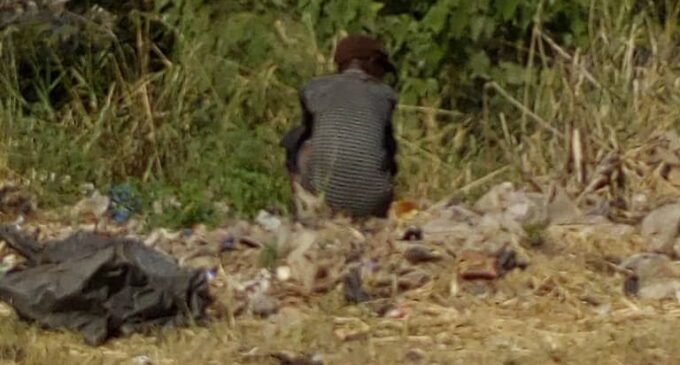Nigeria to mark 59th independence as world capital of open defecation

BY TEMPLE ORAEKI
In October 2019, while India will be marking the 150th birth anniversary of Mahatma Gandhi by celebrating their successful liberation from Open defecation menace; Nigeria will be marking her 59th independence by taking over the baton as the open defecation capital of the world. This is an inevitable situation that Nigerians saw coming, but how long Nigeria will remain in that position, is a question that requires collective response backed by giant strides and pragmatic actions. Is Nigeria ready for such?
The statistics are stark and the trend is unassuming. At the moment, somewhere in Nigeria, there is a girl running down to the bush to answer natures call; there is a woman in the market, squatting behind her shop to ease herself; there is a boy in a motor park who cannot afford to pay for public toilet and would utilize the drainage as his convenience; there’s a man who is conveniently making use of his toilet but when he flushes, the faeces are channelled directly into rivers used by his neighbours as a source of drinking water.
These are all varying scenarios obtainable in different parts of Nigeria, and according to the recent Joint Monitoring Report by WHO and UNICEF, about 38 million Nigerians are involved in this practice of open defecation. From the various scenarios depicted, it is obvious that even people who have and use toilets, also practice open defecation, when the drainages and rivers are the containment of such facilities.
These practices have become the norm for most Nigerians, especially in some rural communities, where it is a cultural practice to defecate in the open, even when there’s a toilet provided. Water scarcity has also exacerbated the practice of open defecation in Nigeria. In many homes and public places where there are toilets but no water, the people also resort to open defecation.
The negative impact of open defecation cuts across all facets of life (from health, economy, to social) and it is a clog in the wheel of development. According to UNICEF, Nigeria loses about NGN455 billion yearly as a result of open defecation; on a yearly basis, over 100,000 children do not live to see their 5th birthday, while several others suffer from stunted growth due to poor sanitation. As worrisome as these statistics are, it will be more disturbing when it is taken into account the number of women and girls who are been sexually and physically abused, daily, as a result of open defecation practices.
Nigeria faces an uphill task of bringing these 38 million Nigerians, to not just own a toilet but also use the toilet. The task is not just about ensuring toilet facilities are in place but also triggering behavioural change amongst the populace, to use the toilet. This might not be daunting when you compare the figures to the over 550 million Indians who were once notable for such practice in 2014.
There is no doubt that there are a few things to learn from the India Swaach Bharat Mission, which succesfully reduced open defecation practices in India. However, a cut-and-paste technique might not give Nigeria, a similar result. It is important to note that the success of India’s mission is largely hinged on its tie to Mahatma Gandhi. Do we need a Nigerian Gandhi? How can Nigeria find the needle in a haystack?
The federal government in partnership with development partners have realized the decay and rot brought about by open defecation practices in Nigeria and have swung into action to launch the “Clean Nigeria; Use the Toilet” Campaign. The Clean Nigeria campaign is an ambitious behavior-change campaign with a strong citizen engagement component. The campaign is a national movement hinged on policy advocacy, public advocacy, and private sector engagement.
As ambitious as this campaign might seem, its success is hinged on grassroots involvement and participation. About 10 Local Government Areas (LGAs), out of the 774 LGAs in Nigeria, have been declared Open Defecation Free (ODF). Improving and leveraging on what is currently working (best practice) in states with LGAs and communities certified as ODF, is one way to reduce the number of Nigerians practicing open defecation, especially in rural and peri-urban areas.
The private sector are key stakeholders in the quest to end open defecation in Nigeria. Banks, FMCG companies, and other multilnational organizations should be engaged to make provision of toilets as part of their CSR projects. On the other hand, SMEs and start-ups should be incentivized to indulge in public toilet business, while the government enhance and strengthen structures that will implement laws prohibiting open defecation. The media also have a key role to play, especially in facilitating behaviour change through amplifying key sanitation messages.
An ODF Nigeria can only be achieved through synergy, leaving no one behind and discarding the silo mentality. Little can be achieved in silo but a huge impact can be made through working in synergy.
Oraeki is a WASH consultant and country director, Hope Spring Water Charity Foundation
Views expressed by contributors are strictly personal and not of TheCable.















There are no comments at the moment, do you want to add one?
Write a comment